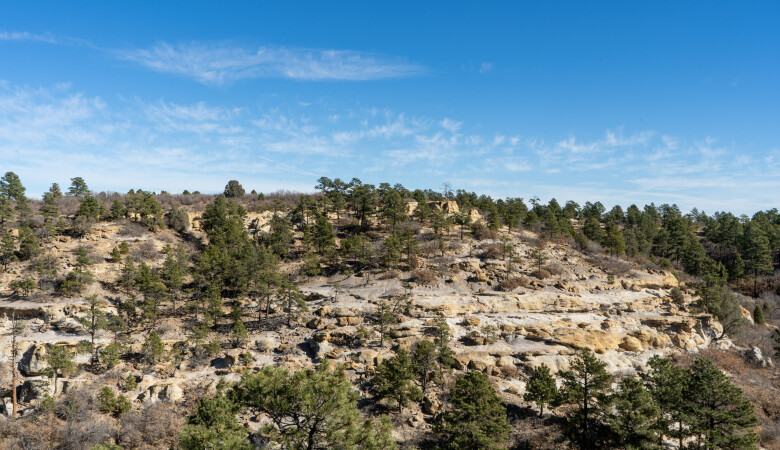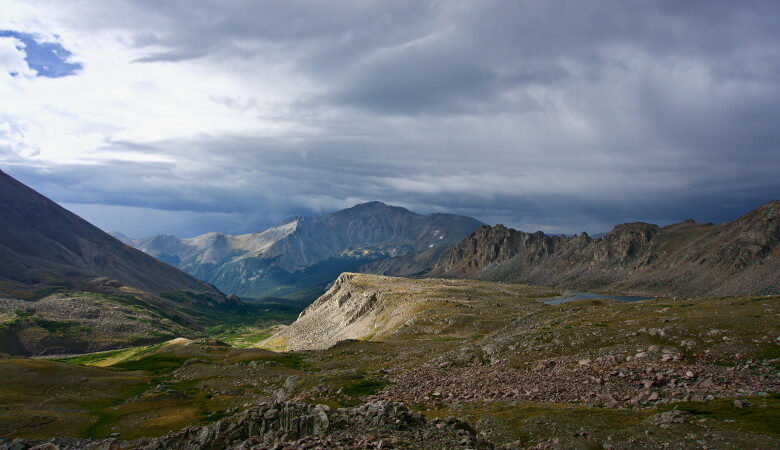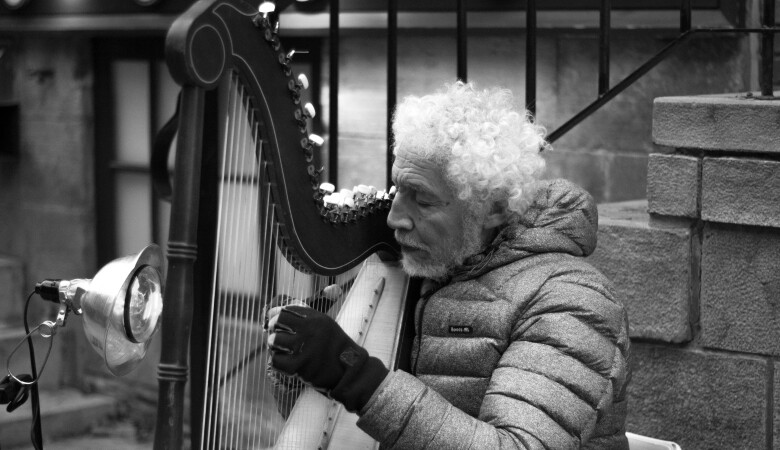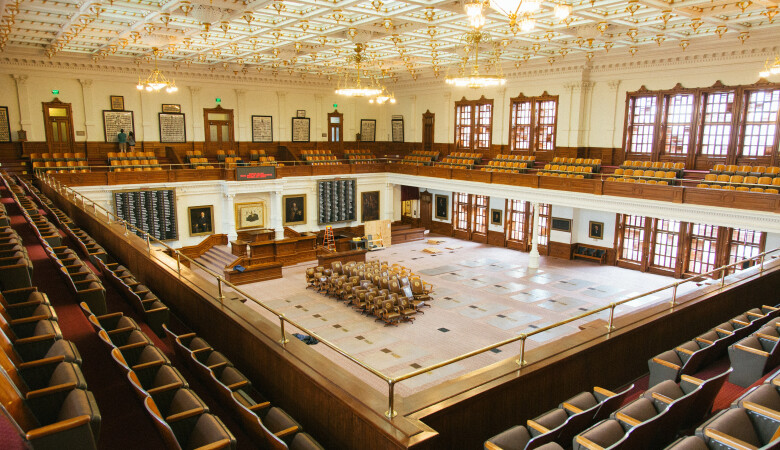An Introduction to the Sermon on the Mount (Matthew Sermon 6 of 151)
January 31, 1999 | Andy Davis
Matthew 5:1-7:29
Preaching, Holiness
Surveying the Terrain
Please turn in your Bibles to Matthew chapter 5. We're going to be continuing our series this morning in Matthew's gospel, and we reach the Sermon on the Mount. We are not going to exhaust all the truth that there is in the Sermon on the Mount. I've been thinking about it carefully for 13 years, and I still have not exhausted all that God wants to do in my life through these three chapters. This is powerful stuff, folks. It's the kind of stuff that'll change you from within. And that's been my prayer all week, that the Sermon on the Mount, as we begin to preach through it and begin to consider today, will change First Baptist Church from inside.
All my life, I've been attracted to mountains. There's something about mountains that just excites me. When I was a child, I used to climb in the White Mountains in New Hampshire with my dad. It was one of our outings that we would make every year. We'd climb up Mount Washington or Mount Adams, and my favorite part would be late in the day. We'd have pitched our tent just below the tree line, and we'd go above the tree line and look down, and see all the surrounding countryside. We'd see the Kancamagus Highway, and we'd see the river that flows down through there. If it was fall, you could see rolling hills of oranges and reds. You could see the sunset. Because what you get for all your labor as you're climbing up the mountain is you get perspective. You're able to look down and see things that otherwise you would never be able to see.
Jesus invites us now, as his disciples, to come up on the mountain with Him and get perspective. But, it's not on the terrain that surrounds us. It's on the terrain of the human character. What does God love in a human heart? That's what we get out of the Sermon on the Mountain. That's what we're going to see.
A Challenging Passage
The Sermon on the Mount has challenged Christians for generations, for hundreds of years. I remember reading recently about King Henry VIII's personal physician, Thomas Linacre. He decided that he was going to change his profession. He was not going to be the personal physician of the king anymore, so he gave up his position in court and he began training for the ministry. He was ordained in 1520, and he began reading the New Testament in Greek. He was a scholar. He read it carefully for the first time. He'd never seen it before. But when he came to these three chapters, Matthew 5, 6, and 7, he became so challenged, so frustrated, that he tossed the Book away and said, "If this is the Gospel, then none of us are Christians." That was the conclusion he came to.
Four hundred years later, another physician to the King of England, Martyn Lloyd-Jones, a man who turned his back on his ministry as a physician and went into the ministry as a preacher of the Word, one of the greatest preachers God has ever put on this planet, came to a similar conclusion. He said, "The Sermon on the Mount crushes me to the ground again and again. But after the crushing is over, it raises me up." That's the beauty, the perfection, the power, of the Sermon on the Mount.
Our Need
When I was first starting as an engineer, I worked in something called a "wet metallization lab." Now, some of you perhaps aren't familiar with that. I wasn't that familiar with it. Still, really, I'm not that familiar with it, but I know it's used in making semiconductors. What it does is it coats things with gold or with some other metal a little bit at a time, a layer at a time. Well, the woman who was the technician asked me if I had anything that I wanted coated with gold. At the time, I had a medallion I wore around my neck, and I said, "Here, can you coat this?" She said, "Sure.” She put it in there, it was in there for a little while, and it came out glistening, shining with gold. It was just beautiful. And I said, "Wow, I really thank you for doing that. Are you sure this is okay? I mean, this is kind of expensive." She says, "Not as expensive as you think." Over the next week, I saw what she meant, as almost all the gold had rubbed off on my shirt or on my chest. It was all gone. Then I realized I didn't owe her that great a debt of gratitude.
As I look at Christianity today in America, I feel like it's like that, a thin layer of gold over unregenerate hearts, people who have never been changed by the Gospel. I think there's all kinds of polls that say, I don't know how many people, 80% claim to be born-again, and yet we see this decaying spiral in our society. How is it possible? I think these three chapters hold some of the answer for us. These three chapters.
Prophet, Priest, and King
In the Old Testament times, there were three important people who challenged Israel to lead godly lives. The three people were the Prophet, the Priest, and the King.
Taking them backwards, Matthew has been at pains from the beginning of this gospel to present Jesus as the King of Israel. You remember in Matthew chapter 1, he begins with the genealogy which proves that Jesus Christ fulfills the prophecies and that He is the King who was prophesied. He is our King.
As believers in Jesus Christ, we focus (rightly so) on Jesus' ministry as our Priest. He offered His body as a sacrifice on the cross, poured out His lifeblood to take away our sin, to stand in the way of God's wrath so that we might not have to suffer judgment. On the third day, he was raised again. He presented His blood, spiritually, as our atoning sacrifice. Jesus is our priest.
But I think of the three, we neglect the ministry of Jesus as our Prophet. We don't think carefully about the words He spoke and how they are meant to transform our lives. We don't listen to His sermons. We ought to let Jesus preach to us. We ought to let Him talk to us and tell us what we are to think, how we are to feel, and on what basis we're going to be judged. You get nowhere, in all the gospels, a larger chunk of Jesus preaching than you do here in Matthew 5, 6, and 7.
Greatest Preacher of All Time
We have received a heritage of great preaching, haven't we?
In the 20th century, we look to Billy Graham, Southern Baptist preacher. He's spoken through technology, through satellites, through air travel, to more people than any preacher in the history of the church.
In the 19th century, there was Charles Spurgeon who, before he was 20 years old, was preaching to tens of thousands in London and transforming lives all over that country.
In the 18th century, we saw George Whitfield who, as I'd talked to the new members class about earlier, crossed the Atlantic Ocean 13 times in a sailing vessel. Can you believe that? He took his life into his hands to preach the Gospel on both sides of the Atlantic. He was the human instrument of bringing in the great awakening. One of the greatest preachers of all time.
In the 17th century, we saw a Baptist preacher named John Bunyan who wrote Pilgrim's Progress, the book that has been translated out of English into other languages more than any other book in the history of the English language. John Bunyan, a powerful preacher, was just a simple man. One of the most important period theologians in the time, John Owen, was talking to the king about John Bunyan. John Bunyan was just a blue-collar worker, everyday guy, great preacher. The king said, "Ah, he's just a tinker, he just works with his hands,” and the godly John Owen said, "Would it please the king, I would tell you this. I would trade all my learning for just a fraction of that man's power in the pulpit." That was John Bunyan.
In the 16th century, we saw Martin Luther, who transformed all of history by his preaching.
I tell you that there is a preacher here today who is greater than Billy Graham, greater than Charles Spurgeon, greater than George Whitfield, greater than John Bunyan, greater than Martin Luther, or all of them put together, and that is Jesus Christ, the greatest preacher of all time.
I get the image here of King Solomon in all his royal robes. Can you picture Solomon coming into his kingly court? And there'll be people from all different lands who had come to hear his wisdom. Solomon's reputation had gotten around. He could answer any question you put to him. Questions about botany or about different kinds of animals, about science and technology. He could answer anything because of the special gift of wisdom that God had given him. So imagine Solomon coming in at the appointed hour, turning around, sitting down on his throne and holding court. Then the Queen of the South coming and testing him with difficult questions, and she was astonished at his wisdom. Jesus talked about that story, do you remember? He said, "The Queen of the South... came from the ends of the earth to listen to Solomon's wisdom, and now something greater than Solomon is here," (Matthew 12:42) referring to Himself. Jesus was the greatest preacher that ever lived.
There's a story of Jesus' enemies. They sent some temple police to go arrest him. Do you remember the story in John 7? So the temple police went to call Him in. They were under orders. They were going to arrest Him and they were going to try Jesus for blasphemy. They went and listened for a while, and they came back empty-handed. Do you know why? They said, "Why didn't you bring Him in?" They answered, "No one ever spoke the way this man does." (John 7:45-46)
It's still true today. Jesus is the greatest preacher that ever lived. We need to listen to the Sermon on the Mount as from the greatest preacher who ever lived, God's messenger, God's prophet. “In the past God spoke to our ancestors through the prophets at many times and in various ways, but in these last days he has spoken to us by His Son... The Son is the radiance of God's glory and the exact representation of His being, sustaining all things by His powerful word.” (Hebrews 1:1-3) He is the one who's going to preach to us today. And we need to listen to that message.
Importance of the Sermon on the Mount
I think never before, in all church history, have we needed to listen to the Sermon on the Mount as we do today. Why? It's because of that thin veneer that I see in my heart and in Christianity as a whole. I don't want that kind of faith in Christ. I want one that reaches deep to my heart, don't you? Don't you want a genuine faith in Jesus Christ? Listen to the Sermon on the Mount. Listen to what He has to say. The Sermon on the Mount drives us to Jesus Christ for the new birth. It points us to the need that we have for faith in Jesus Christ more than any other passage of Scripture. When you go through the precepts of the Sermon on the Mount, if you make it through unscathed, then I fear for your soul. If you get through and you say, "Check, check, I can do that, check, yep, that's me," right on down the line, then I fear for your soul. You're self-deluded.
I remember, I used to do telephone evangelism up in Massachusetts. That's in lieu of door-to-door. They don't like you going door-to-door in Massachusetts, but they'll tell you anything over the phone. They'll tell you their marriage struggles, they'll tell you anything, because it's somewhat impersonal and a little bit safe. I used to talk to people about faith in Christ, and this one woman told me, "I just try to live by the Sermon on the Mount." I said, "How are you doing?" She said, "Very well." I said, "Have you read the Sermon on the Mount?" She said, "Oh, yes."
Matthew 5:48 says, "You... must be perfect, as your Heavenly Father is perfect." Hmm. Check? Do you meet that test? Are you perfect as the Heavenly Father is perfect? Well, no one's perfect as the Heavenly Father is perfect. Amen.
The Beginning
Let's go back to the beginning. "Blessed are the poor in spirit, for theirs is the Kingdom of Heaven." (Matthew 5:3) Do you want to come into the Kingdom of Heaven? You don't come in as a rich man; you come in as a beggar. You come in saying, "I can't do this. This isn't me." That's how it all starts. "Blessed are the poor in spirit, for theirs is the Kingdom of Heaven."
And then you begin to mourn. "Blessed are those who mourn, for they will be comforted." (Matthew 5:4) Why are you mourning? You're mourning because of sin. You're broken over it. It's not so much that God is going to comfort you in the loss of a loved one. He does that, but that's not what this is about. This is about mourning over sin. It's mourning because you're poor in spirit.
"Blessed are those who mourn, for they will be comforted. Blessed are the meek, for they will inherit the earth. Blessed are those who hunger and thirst for righteousness, for they will be filled. Blessed are the merciful, for they will be shown mercy. Blessed are the pure in spirit, pure in heart, for they will see God. Blessed are the peacemakers, for they will be called sons of God. Blessed are those who are persecuted because of righteousness, for theirs is the Kingdom of Heaven. Blessed are you, when people insult you, persecute you and falsely say all kinds of evil against you because of Me. Rejoice and be glad, because great is your reward in Heaven, for in the same way they persecuted the prophets who were before you. You are the light and the salt of the earth, but if the salt loses its saltiness, how can it be made salty again? It's no longer good for anything except being thrown out and trampled by men. You are the light of the world. A city on a hill cannot be hidden. Neither do people put a lamp under a bowl after they light it, instead they put it up on its stand and it gives light to everyone in the house. In the same way, let your light shine before men, that they may see your good deeds and praise your Father, who is in Heaven." (Matthew 5:4-16)
Flying Over
I recited the entire Sermon on the Mount to myself this week, and do you know how long it is? It's 13 minutes and 20 seconds. I was thinking about preaching the whole thing to you this morning. You'd say, "Well, we didn't get any preaching." Oh, you got preaching from the greatest preacher who ever lived. But I'm not going do that. Instead, I'm going to give you a helicopter view. I'm going to fly over these three chapters. We're going to look at the whole forest, and then we're going to go back and start looking, over the next few weeks, at the individual trees. If you don't see the whole forest, you're going to miss the trees. You're going to get blown away by "turn the other cheek," (Matthew 5:39) or "if someone sues you and wants to take your tunic, let them have your cloak as well." (Matthew 5:40) You're going to say, "I can't do that." Well, you have to start at the beginning and go through. This sermon is put together perfectly by the greatest preacher who ever lived. So we're going to fly over it.
I saw an IMAX movie once about the space shuttles that flew around the Earth, and it was a one-hour trip over the entire globe. Walter Cronkite was talking as we moved, and so you get this bird's-eye view of the entire thing. That's what I would kind of like to do this morning with the Sermon on the Mount.
True Happiness
The Sermon on the Mount drives us to Christ, and it also shows us the pattern, God's pattern, for true happiness. Do you know that people all over the country, all over the world, are looking for happiness? What's really sad, what's really challenging, is that they are seeking for it in ways that are destined to make them miserable. This is God's path to happiness. You want to know what happiness is all about? It's right here.
The last Old Testament prophet was Malachi. We talked about him when we talked about John the Baptist, do you remember? Malachi is set at the very end of the Old Testament. If you were to flip back there, just a few pages, just turn until you get to... On my Bible, I have this little page, this big white space here that says "New Testament," it means "new covenant," God's new way of dealing with us. Turn back one more page. What is the last word of the old covenant? "Curse." Oh. The last word that God has to speak to us in the old covenant is "curse." "Lest I come and smite the earth with a curse." (Malachi 4:6, KJV) That's God's curse on anyone who will not obey and follow the old covenant.
What is Jesus' first word in the Sermon on the Mount? Matthew chapter 5. What is it? "Blessed"! Blessed! "Blessed are the poor in spirit, for theirs is the Kingdom of Heaven." (Matthew 5:1) This is the new covenant. The old covenant brought threatenings. It brought Mount Sinai. It brought lightning, and thunder, and storm, and terror. The new covenant under the preaching of Jesus, under the blood of Christ, is a covenant of grace, and it brings blessing. If you'll just admit that you need the blessing, if you'll just say, "I'm a beggar and I need it. I want it. Please give it to me." That's what it's all about.
The first verse holds the key to the whole thing. Be a spiritual beggar. All the way through the three chapters, you'll understand what God's doing here. Keep saying, "I can't do this. Do it in me, Jesus." That's what it's all about. That's how the Sermon on the Mount works. It's God's pattern for true happiness and success.
It’s also a power and a pattern for witnessing for the church. It's a resource for witnessing, for sharing our faith. I think the church has problems leading people to Christ now, specifically because we're too much like the world. I really believe that our power for witnessing and transforming the world comes as we make a separation between us and the world. We begin to think differently. We love different things. We have our eyes set on different goals. We're just different. And the further away we get from that, the stronger the pull comes on some people that God has prepared in the world, to leave that and come over to the church to see what's going on. "How can it possibly be that they live this kind of a life?" There's a yearning, a hungering, and a thirsting that's created by people who live apart and who live differently from the world. The Sermon on the Mount holds the key.
Shattering Self-reliance
Not only that, but the Sermon on the Mount penetrates people's outer crust if they would just listen to it, if they would just accept what Jesus is saying, that this really, truly is God's standard for judgment. You must be every bit as perfect, morally, as God is to go to Heaven. And if you're trying to get there on your own righteousness, you will never make it. It's a resource for witnessing. It shows us what we must preach to people to shatter that self-reliance.
I love natural history, and as I've been reading, the greatest natural enemy of the king cobra is the mongoose. Do you know what a mongoose is? It's just this little thing that runs around the king cobra, and at a key moment it jumps out and breaks the king cobra's neck. Can you believe that? I thought maybe it's immune to the cobra's venom, but it's not. It just knows how to fight it. That's the mongoose.
What is the natural enemy to a good cotton harvest? That's the boll weevil. Any of you who know anything about cotton know about the boll weevil.
The greatest natural enemy to your soul in the struggle with sin is self-righteousness, and the Sermon on the Mount shatters self-righteousness, because it needs to be shattered. That's what the Sermon on the Mount does.
Pleasing God
And finally, it is the pattern for pleasing God. If you want to know how to please God, read the Sermon on the Mount. This is pleasing to God. Now, for any of you who go through this and think, "I don't need to do this. This is not important," all you need to do is go to the very end, chapter 7, where Jesus says, "Everyone who hears these words of Mine and puts them into practice is like a wise man who built his house on the rock. The rains came down, the streams rose, the winds blew and beat against that house, yet it did not fall because it had its foundation on the rock. But everyone who hears these words of Mine and does not put them into practice is like a foolish man who built his house on sand. The rains came down, the streams rose, the winds blew and beat against that house, and it fell with a great crash." (Matthew 7:24-27) I don't see an exemption clause in there, do you? I don't see your escape clause out there. Do you find one? "Oh, I don't need to do this."
You have a choice. This is a key moment for you. Do you know that you're hearing the Sermon on the Mount right now? You're hearing the words of Jesus. Now you're in trouble. You have a choice: You either put them into practice or you don't. If you put them into practice, you're like a wise man building his house on the rock. If you don't, it's all going to come crashing down. You're hearing the words of Jesus. You've got to put them into practice. That's what Jesus said.
Revival
I think as we go through the Sermon on the Mount and as we study it, we're going to see God doing transforming things at First Baptist Church. It's my hope that it could bring about a tremendous revival. I've been praying openly that God would draw us together for prayer, and that there would be such a spirit of brokenness over sin, such a grief over sin, that there's an outpouring of the Spirit and a sense of the comfort that only Jesus can give. That's where the revival starts. That's when we see people getting saved. It starts with us, and it starts with us understanding these three chapters.
Not Social Gospel
Now there have been faulty approaches to the Sermon on the Mount in the past. About 100 years ago, one of them was very popular, it was called the "social gospel." The idea there was that we could bring in the precepts of the Sermon on the Mount through our own efforts, through legislation, through reaching out to the poor. We could abolish war.
The problem with that is that two things happened in the 20th century: World War I and World War II. At the end of World War I and World War II, that illusion that we could bring in the kingdom through our own efforts was shattered by the depths of human depravity that we saw in those wars. Social gospel is out.
Not the Law Intensified
Some people say that the Sermon on the Mount is just the law of Moses intensified. You take that old covenant and just kind of turn it up a few notches, and that's what you're getting in the Sermon on the Mount. "You have heard that it was said... “You shall not murder…”, but I tell you that anyone who is angry with a brother… will be in danger of the fire of hell." (Matthew 5:21-22) That's what Jesus says. So it's just a Sermon on the Mount turned up a bit. "You have heard that it was said “Do not commit adultery”, but I tell you that anyone who looks at a woman lustfully, has already committed adultery with her in his heart." (Matthew 5:27-28) It's just the law of Moses intensified.
The only problem with that way of looking at the Sermon on the Mount is that it totally neglects the beatitudes, the blessings that come through being poor in spirit. There is no blessing like this in the law of Moses. The law of Moses does not encourage us to come bankrupt to God and say, "I can't do it," but that's what the beatitudes do, the blessings that come from understanding your own spiritual emptiness. So this is not just the law of Moses all over again. It's something different.
Not for Someone Else - It's for Us
The dispensational view is found in the Scofield Study Bible and in other places. That's the idea that basically when you're reading the Sermon on the Mount, you're reading somebody else's mail. It wasn't meant for you. It's meant for the Jews. There are various arguments put forth, but the basic idea is that God sent Jesus to be the King of the Jews. He meant to set up a kingdom on earth, and these were the principles that He was going to run His kingdom by. They rejected Jesus as their king, and so God had to go to plan B. We, the Gentiles, are plan B.
How do you feel about being plan B? [chuckle] Well, that's actually very faulty because God has had one salvation plan throughout all of history, and He's working out that plan. Furthermore, there's not a single ethical principle that you find in the Sermon on the Mount that you will not also find in Paul's writings, or in Peter's, or in John's. So if you throw out the Sermon on the Mount, you might as well throw out the whole New Testament. The Sermon on the Mount is meant for us.
Requires Attention
The fourth view is one that I call the "shallow evangelical view." That the law... I mean, the Sermon on the Mount was meant to drive us to Christ, and that's it. And once we come to faith in Christ, we really don't need to pay much attention anymore to the Sermon on the Mount. We know we need a savior, we don't really need to come back and figure out what Jesus meant by these various things. That's the shallow evangelical view.
When was the last time you read these three chapters and said, "God, change my life. Make me live like this. I want to live like this"? Well, that's what Jesus Christ has come to do.
The problem with that way of looking at the Sermon on the Mount is that it neglects what Paul says in Romans 8:4, "in order that the righteous requirements of the law might be fully met in us who do not live according to the sinful nature, but according to the Spirit." What happens is we come to the law, we come to the Sermon on the Mount, we're shattered by it. We come to Christ, we are saved by faith in Christ alone, not through our own works, but what then does God do? He picks us up by the Spirit and moves us back to the law and says, "Now live this out by the Spirit. Not to earn your salvation, but because this is the kind of life that pleases Me."
The shallow evangelical view will not do. This, brothers and sisters, is how Christians are expected to live. This is how Christians are enabled to live. It is how Christians are empowered to live by the Holy Spirit. This is what God wants to do in each and every one of you, and in my life, too. This is what Jesus bought for you when He died on the cross: godly character that conforms to these three chapters. Don't you want it? Don't you hunger and thirst for this? I do. I want to look at myself and see these things growing. I want to see these attitudes changing from within by the power of the Spirit. Hungering and thirsting for righteousness, that's what it's all about.
An Outline
Nw what I'd like to do is I'd like take you on a general overview. I've given you an outline in your books there, in your pamphlets, and what I'm going to do here is I'm going to give you a general division of how the Sermon on the Mount looks to me. We're going to be going through this over the next period of time, but this is what you can expect when you see it.
We start out with the beatitudes, and up through verse 16 in chapter 5, with what we could call "norms of kingdom life." Jesus is speaking to his disciples about kingdom life, and He's telling us what the character of a Christian is going to be. If you're not a Christian, you can't live out the Sermon on the Mount. So He first draws you through the beatitudes to show you what it means, truly, to be a heart Christian. If you take all these three chapters, all that Jesus says, you can sum it up into two words, heart-righteousness. Heart-righteousness, the righteousness that comes from within. That's what the beatitudes do, they show you what has to happen in you to produce heart-righteousness.
In verses 11 and 12 of chapter 5, we get the reaction in the world: "Blessed are you, when people insult you, persecute you, and falsely say all kinds of evil against you." If you live out a life of heart-righteousness, you are going to be persecuted. Guaranteed. We'll get to that more in-depth when we come to it. Heart-righteousness leads to a persecution reaction.
But then in verse 13 through 16, it talks about the fact that we are salt of the earth, we are light of the world. This talks about a Christian's responsibility in society. We are supposed to have an illuminating effect on society by being light of the world. We're supposed to have a preserving, purifying effect on society the way salt did on meat. We are the salt of the earth. That's what we're supposed to be. So that's the general expectation, norms of kingdom life.
Then after that, from verse 17 of chapter 5 up through the end of the Sermon on the Mount, He talks about particulars, almost case studies, of kingdom life. The rest of chapter 5, He's talking about the kingdom of God in the Old Testament. He brings you through various aspects of the Old Testament, the law of Moses. We could call this "heart-righteousness to neighbor," because you know that the entire law is summed up in a single command. "Love your neighbor as yourself," (Leviticus 19:18) right? Jesus takes us through heart-righteousness to neighbors. Not surface-righteousness; something coming from the heart.
I've been saying "heart" over and over. What is the heart? I told you this on Wednesday evening, those of you who were there. Heart is that part of you which thinks, that part of you which feels, and that part of you which decides. I'll say that again. The heart is that part of you which knows, that part of you which feels, and that part of you which decides. It's who you really are inside. God wants it to be righteous. He wants you to know in a righteous way, He wants you to feel and be passionate in a righteous way, He wants you to make choices of your will according to righteousness. He wants heart-righteousness. That's what the whole Sermon on the Mount is about. An internal righteousness, because there is an invisible God who watches everything in your life. That's the Sermon on the Mount.
So He's going to take you through the law of Moses.
First, in chapter 5 verse 17 through 20, He's going to talk about a proper view of the law of Moses. "Do not think that I have come to abolish the law of the prophets. I have not come to abolish them, but to fulfill them." "I want to see them lived out," says Jesus. "They're going to be lived out in Me fulfilling prophecy, but then they're going to be lived out in you, who do not live according to the sinful nature but according to the Spirit."
Then He's going to talk about anger. "You have heard that it was said, 'Do not murder,' but I say don't even be angry." Then He's going to talk about marital faithfulness. "You've heard that it was said, 'Don't commit adultery.' I say even more than that, don't even lust. I'm staring at your heart all the time, I see it all." And then He talks about marital commitment. "You've heard that it was said this and that about divorce, but I tell you this," and He deals with divorce. He talks about oaths. He talks about the way you talk. "Don't make a promise with a big oath; just let your yes be yes and your no, no. Be a person of integrity when you speak", says Jesus.
He even drives it to the nth degree when He says that we should deal with our enemies with integrity. We should deal with our enemies as people who are poor in spirit. People who are broken before God aren't prideful before enemies. We know what it's like to feel like an enemy of God. We were enemies of God. So we're humble, and we're not going to strike back. When somebody hits us on the right cheek, we want to hit him back, don't we? Harder! Make sure they don't hit us again, right? Jesus said, "Turn the other cheek." The person who is able to do this is somebody who's poor in spirit. Somebody who's broken over sin and says, "I know why you hit me, I understand. But God still has a love that can conquer that sin."
It all gets summed up in verse 48. "Be perfect, therefore, as your heavenly Father is perfect." Write that one down and put it next to your computer. Write that one down and put in your kitchen. "Be perfect, therefore, as your heavenly Father is perfect." If you're ever tempted to feel self-righteous, just look at that verse. It will finish that, hopefully, for good. That is God's standard.
In chapter 6, He goes to the root of the matter in terms of our personal relationship with God, heart-righteousness before God. Here, we’ll talk about religion. What is religion? In the '60s and '70s, there was kind of a backlash against religion. “It's not a religion, it's a relationship.” Remember that? And so, religion was kind of pushed aside. But religion is just the outward actions of your inner faith. It's the way you live out what you believe. And so here, Jesus talks about the way you give money, for example. Don't give it in a big, showy way. Be careful not to do your acts of righteousness before men to be seen by them. Do it secretly so that only God can see. That's heart-righteousness. A life lived out in front of an invisible God who sees all the secrets of your heart and who will judge your heart on Judgment Day. "So don't do it for show; do it because I'm watching you." And when you pray, don't do it in an open, showy way; go in and close the door and pray to your Father unseen. "I want faith. I want a people that understands that I see you all the time. I want prayers that come from the heart. That's the kind of prayer I want." And he talks about fasting. "When you fast, don't make a big show of it. Do it for inner purity so that I see you. I will reward you," He says.
"Don't live for treasures here on Earth. Don't live for esteem from other people, for pride. Don't live for financial rewards, or positions, or anything in this world. Live for the next world. Pass all those things on to Me, I'll take care of them. Store up for yourselves treasure in Heaven where moth and rust cannot destroy, and where thieves do not break in and steal, for where your treasure is, there your heart will be also." "Store up treasures," says Jesus, "but don't do it here in this world. Pass it on to Me and I'll take good care of it. I'll hold it fast for you." And all of that produces a freedom in this world. Freedom from anxiety, freedom from concern about your life, what you'll eat and drink, and about your body, what you will wear. Your life is more important than food in your body, more important than clothes. It frees you up from those things. You're not concerned about yourself anymore. You have a heavenly Father who's taking care of all your needs. He'll give you everything you need. You are free now to "seek first His kingdom and His righteousness, and all of these things will be given to you as well." (Matthew 6:33) Freedom in this world, because you live this kind of life. Don't you want it? Aren't you tired of covetousness? Aren't you tired of anxiety over material things? The Sermon on the Mount holds the key.
Then in chapter 7, He talks about living in view of the coming final day. There is a day coming called "the Day of Judgment." "Do not judge," said Jesus, "or you too will be judged. For in the same way you judge others, you will be judged, and with the measure you use, it will be measured to you." (Matthew 7:1-2) There's a Day of Judgment coming. Isn't that what the two houses is all about? What do you think the rain is? "The rain came down, the streams rose, and the winds blew and beat against that house," (Matthew 7:25) that's Judgment Day, folks. That's when everything gets tested, and we'll see how strong it is. What kind of life did we live? Did we live a life that glorified God? Did we live a life that built for eternity? Or did we live a life that just collapses on Judgment Day? It evaporates, it has no eternal value. So all of chapter 7 is about living in view of that final assessment. A heart-righteousness that prepares for that final day.
And so Jesus talks in verse 13 and 14 about two roads, one leading to Heaven and the other to Hell. "Enter through the narrow gate, for wide is the gate and broad is the road that leads to destruction and many enter through it, but small is the gate and narrow the road that leads to life, and only a few find it." "Be one of the few. Find that road that leads to life," says Jesus. Two roads.
And He talks also about two trees. There are guides along those roads, aren't there? They're going to point the way. There are false teachers out there, aren't there? "By their fruit you will recognize them." (Matthew 7:16, 20) Look at the fruit of your teachers. Try to see if they really are pointing you to God or if they're not.
And then He talks about two claims. "Many will say to Me on that day, 'Lord, Lord,'" (Matthew 7:22) that's a claim, "You're my Lord Jesus." "Am I? Away from me, I never knew you, you evil doer," says Jesus. Two claims. Make sure your claim is valid. Make sure you really know Jesus as your Lord and Savior.
And then finally, as we've said, two houses. One of them stands, and one of them doesn't. Everybody is building something. Is what you're building going to last through that test, or is it not? That's what you have to ask yourself. The Sermon on the Mount points the way where the things you do will last for eternity. Go all the way back to the beginning: "Blessed are the poor in spirit, for theirs is the Kingdom of Heaven." (Matthew 5:3)
Application
I've been speaking to a mixed group. I don't know your spiritual background, I don't know if you really are born-again. If you are not certain that you have given your life to Jesus Christ, come today and give your life to Him. Be a spiritual beggar, say, "I look at myself and I don't match this standard. I can't stand up on Judgment Day to this kind of standard. And I believe that this is the kind of standard that will be used on Judgment Day. I can't do it, Jesus." If you can say that honestly from your heart and you've never said it to Jesus before from your heart, today for you can be the day of salvation. Come forward and talk to me, and I'll pray with you, and we'll talk to you about what it means to enter through the narrow gate, to walk along the road that leads to life, not to destruction.
If you have given your life to Jesus Christ, I'm asking, I'm urging, I'm begging you, to turn your mind back to these three chapters. Line your life up against it and say, "God, make me hungry and thirsty for righteousness. Make me pure in heart. I want to see You, Jesus. And I want everything I do to last for eternity. Use these three chapters in me, Lord, to transform my life."






























